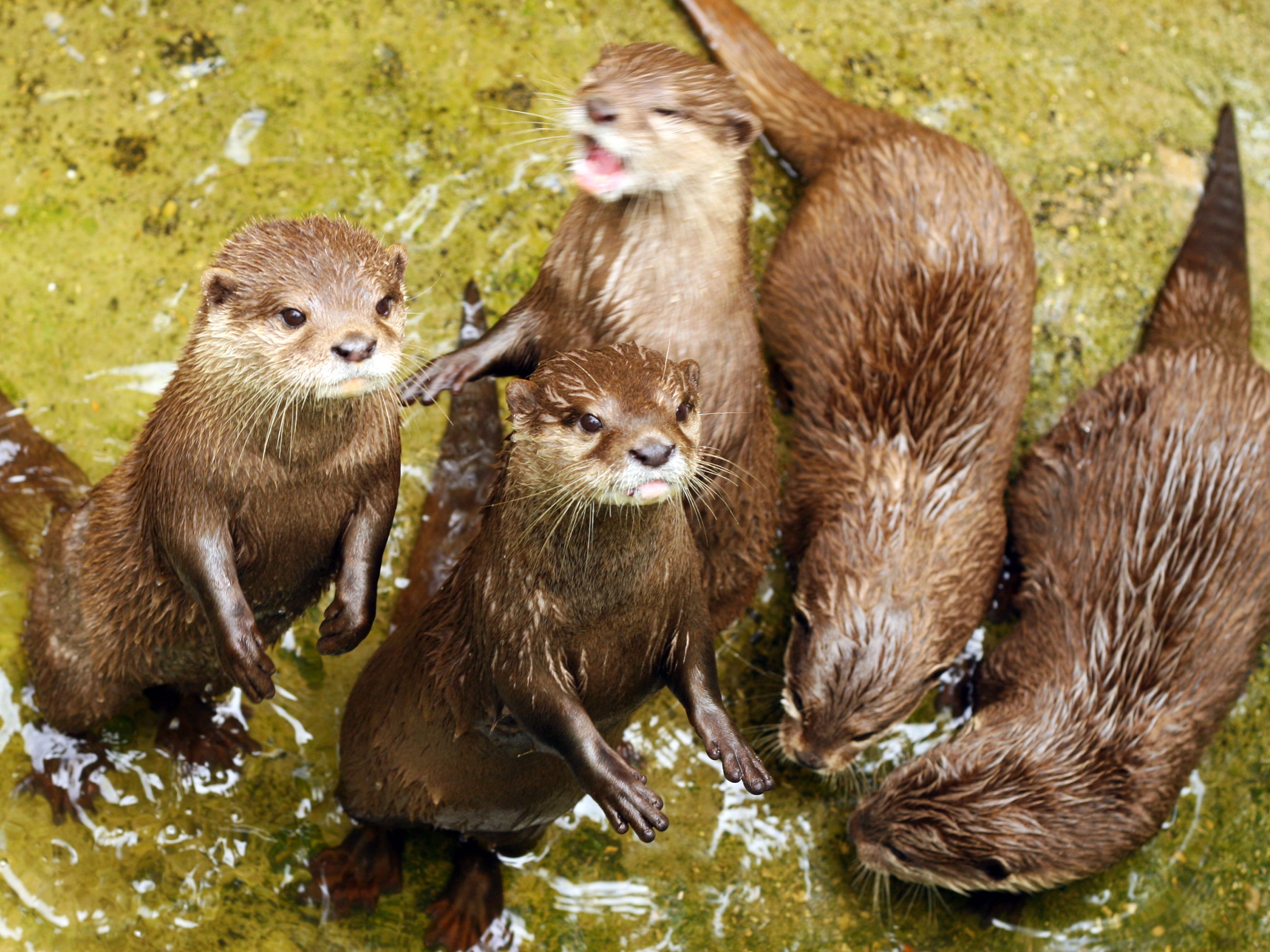Otters surprise scientists by learning how to solve puzzles from one another
Research also provides evidence otters have capacity for long-term memory

Otters are naturally playful and inquisitive animals, but a new study reveals that asian short-clawed otters actively learn from one another when solving puzzles to get food.
A research team at the University of Exeter gave groups of otters a variety of different transparent containers, each containing meatballs as bait.
These plastic puzzles could be opened by twisting or pulling a particular lid or handle.
The researchers found evidence of “social learning” - as when one otter cracked the puzzle, its closest “friends” quickly figured it out too.
The otters saw each puzzle twice, several months apart, and when they came back to it, the researchers found the otters could solve the puzzle 69 per cent faster on average the second time round. They said this suggests the animals have a capacity for long-term memory.
“Asian short-clawed otters are declining in the wild, partly due to overfishing and pollution affecting the crustaceans and small fish they feed on,” said lead author Alex Saliveros, of the Centre for Ecology and Conservation on Exeter's Penryn Campus in Cornwall.
“With that in mind, we wanted to understand more about how they learn and remember information about new food sources.
“Being able to catch new prey in new ways, and to pass on that knowledge, could be important in terms of conservation.
“Our study is the first to show evidence of social learning and long-term memory in Asian short-clawed otters - which may be good news in terms of their adaptability and future survival.”
By building up a picture of the otters’ “social networks” - done by examining which otters spent most time together - before presenting them with the puzzles, the researchers were able to see how problem-solving techniques passed through the otter groups.
Senior author Dr Neeltje Boogert said: “We previously found that smooth-coated otters learn from each other.
“Now that we know Asian short-clawed otters do so as well, we can start investigating how we might transmit critical survival information regarding new foods and predators through wild otter groups more generally.”
The Asian small-clawed otter is the world’s smallest otter species, and mainly lives in mangrove swamps and freshwater wetlands in south and southeast Asia.
The species faces ongoing habitat loss, pollution, and is hunted in some areas. it is listed as “vulnerable” on the IUCN Red List.
The research is published in the journal Royal Society Open Science.
Join our commenting forum
Join thought-provoking conversations, follow other Independent readers and see their replies
Comments
Bookmark popover
Removed from bookmarks